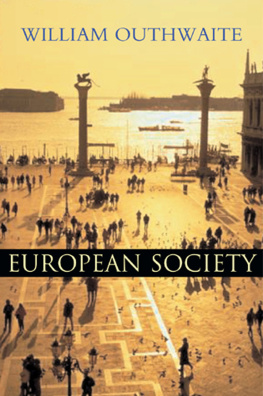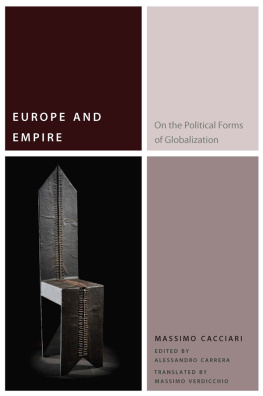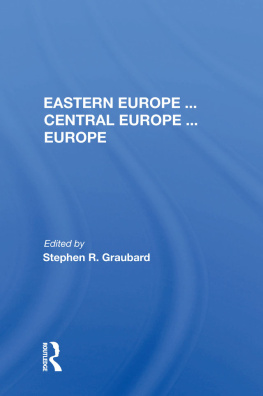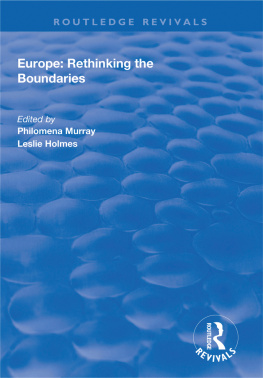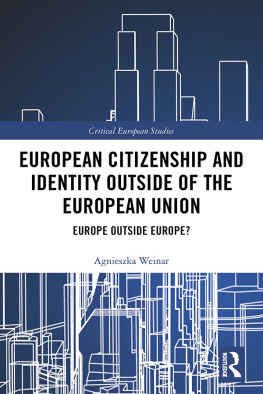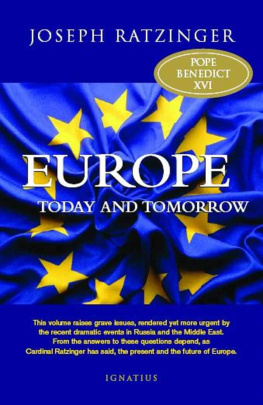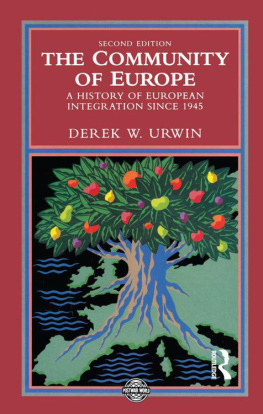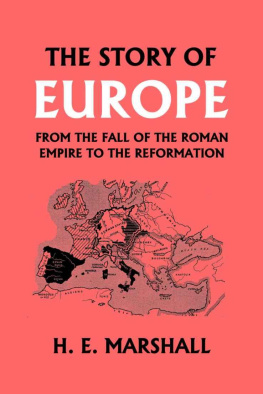C ultural Memory in the Present
Mieke Bal and Hent de Vries, Editors
ABOUT EUROPE
Philosophical Hypotheses
Denis Gunoun
Translated by Christine Irizarry
STANFORD UNIVERSITY PRESS
STANFORD, CALIFORNIA
Stanford University Press
Stanford, California
English translation and Preface 2013 by the Board of Trustees of the Leland Stanford Junior University. All rights reserved.
About Europe: Philosophical Hypotheses was originally published in French under the title Hypothses sur lEurope: Un essai de philosophie. 2000 ditions Circ. All rights reserved. Translated and published by arrangement with ditions Circ.
This book has been published with the assistance of the French Ministry of CultureNational Center for the Book.
Ouvrage publi avec le concours du Ministre franais charg de la cultureCentre National du Livre.
This book has been published with the assistance of the research group Littrature franaise XIXeXXIe sicles at Paris-Sorbonne University and the Atelier de Recherches Thoriques et Potiques (Artpo).
Ouvrage publi avec laide de lquipe Littrature franaise XIXeXXIe sicles de lUniversit Paris-Sorbonne et lAtelier de Recherches Thoriques et Potiques (Artpo).
This work, published as part of a program of aid for publication, received support from CulturesFrance and the French Ministry of Foreign Affairs.
Cet ouvrage a bnfici du soutien des Programmes daide la publication de CulturesFrance/Ministre franais des affaires trangres et europennes.
No part of this book may be reproduced or transmitted in any form or by any means, electronic or mechanical, including photocopying and recording, or in any information storage or retrieval system without the prior written permission of Stanford University Press.
Printed in the United States of America on acid-free, archival-quality paper
Library of Congress Cataloging-in-Publication Data
Gunoun, Denis, 1946- author.
[Hypothses sur lEurope. English]
About Europe : philosophical hypotheses / Denis Gunoun ; translated by Christine Irizarry.
pages cm.--(Cultural memory in the present)
Originally published in French under the title Hypothses sur lEurope: Un essai de philosophie.
ISBN 978-0-8047-7385-0 (cloth : alk. paper)-
ISBN 978-0-8047-7386-7 (pbk. : alk. paper)
ISBN 978-0-8047-8558-7 (e-book)
1. Europe--History--Philosophy. I. Irizarry, Christine, translator. II. Title. III. Series: Cultural memory in the present.
D16.8G81813 2013
940.01--dc23 2012045372
Typeset by Bruce Lundquist in 11/13.5 Adobe Garamond
For Paola, my Princess Europe
Contents
Preface
What makes Europe into a question for our world, present and futureand not just a historical or cultural givencomes from a deep ambivalence that marks the European phenomenon as much in terms of the facts as in thought.
Indeed, if we search for what sets the culture of Europe apart, what belongs to it properly speaking and what might constitute its patrimony or its core identity, we uncover assets that are undeniably precious, and whose constitution has required endless patience and energy; yet they are difficult to grasp in and of themselves: a certain general idea of what is human, a vision of being as a whole, a concern for what is broadest and for what is most commonin a word, a penchant for the universal. How strange that, in the end, Europe may not have produced anything for itself beyond this milieu in which it is itself dissolving; that its singularity may consist in denying that it is singular and in affirming or giving rise only to that which it shares with everyone else. Since its dawn, Europe may have only worked toward this excess that resorbs it. Better still, the deep value of European culture may lie precisely in the fact that Europe has beenand may still bethe place that constructed the unreasonable dream of a humanity open to all, and of a radically way of being in common.
This is not to say that Europe might have the prerogative of broadminded views and generosity. First, one would have to be thoroughly acquainted with India, China, ancient America, or immemorial Africa and their thinking to know whether this demon doesnt stir them as well. But above all, the desire animating Europe, to expand and share, has combined with anothercontradictorytendency throughout its history: the inclination to take up this quest, to recognize it as its own, and thereby to endow its natives with an otherwise established identity, that of privileged possessors of the universal and superior specialists of the general. More than one colonial undertaking was legitimized in the name of a brutally despotic universalism. Moreover, it is exactly when the champions of commonality manifest this unexpected particularism that the figure of Europe appears. For there to be a universal, there is no need for the idea of Europe, or the word, or its conception. Other attempts at universality that preceded and influenced the idea of Europe had done without it: the ideas of empire or Christendom were not meant to be specifically European; it was Europe, after the fact, that laid claim to them and annexed them to its heritage. Neither Stoic thought nor the words of Jesus Christ are linked to the continent. When Europe comes on the scenenot when the word is born but when the idea imposes itselfit is at the intersection of these two opposing exigencies: the desire for universality and the concern for its repatriation. This is the hypothesis underpinning this book: Europe was born of this (mis)alliance. Understanding the tension between the ongoing idea of universalitythe sole contents of European cultureand Europes withdrawal into a continental identity is the goal of the following pages.
Today, the question raised by this ambivalence is no longer specifically European. This is because, first of all, examining this ambivalence requires a fairly deep re-elaboration of the concept of the universalas attempted in this book. It is very important to say todayand everywhere, no doubtthat the universal is not the same as the uniform, or the global. The universal is a process of transformation of human thoughts and practices, and it works to unify and assemble them. On this score, the universal is neither a stable state nor a distant horizon; it is an onward movement, a stride, a transformation. That is why it is always both extensive and intensive: spreading its movement over a broader and greater expanse and affecting each of its agents in their singular depth. The universal is less the becoming homogeneous of the world than its becoming shared, and simultaneously, for each of the worlds inhabitants, becoming a human citizen. The universal is not worldwide globalizationwhich, as we can see, multiplies inequalities, hierarchies, barriers, and injustices. The universal is an ethical process of conjunction and intersection.
Conversely, what is at stake in repatriating things toward the figure of the continental is surely not the recognition of singular histories, legacies, homelands, or affinities. On the contrary: the withdrawal into the representation of Europe as a continent crushes all this through an imaginary investment in an identitythat is to say, the worship of sameness and of that which is like oneself, the appropriation of history and commonality by way of the self of a supposed European subject.
In this double sense, the ambiguity that works its way through the history and thinking of Europe turns into our question, a question for everyone, for the planetary citizens of today and tomorrow. It is the question of the relation between the desire to share and the urge to appropriate, between a calling and a returnbetween our momentum and our image.
Next page

